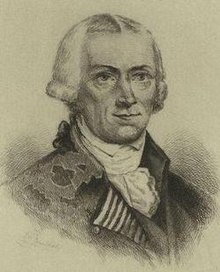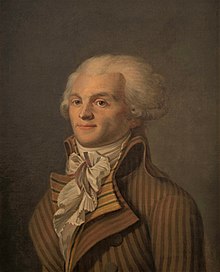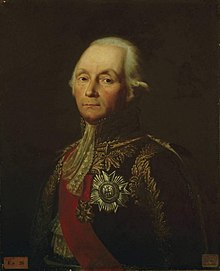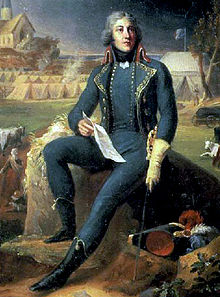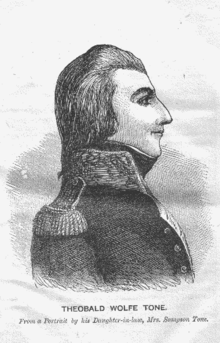Chapter One: Forged From The Forge
Chapter One: Forged From The Forge
"To see men without clothes to cover their nakedness, without blankets to lay on, without shoes by which their marches might be traced by the blood from their feet, and almost as often without provisions as with; marching through frost and snow and at Christmas taking up their winter quarters within a day's march of the enemy, without a house or hut to cover them till they could be built, and submitting to it without a murmur is a mark of patience and obedience which in my opinion can be unparalleled. The unmatched purity and patriotism of a soldier that nobody else can match." - General George Washington

General Washington and Major General Lafayette checking upon the soldiers at Valley Forge
"To see men without clothes to cover their nakedness, without blankets to lay on, without shoes by which their marches might be traced by the blood from their feet, and almost as often without provisions as with; marching through frost and snow and at Christmas taking up their winter quarters within a day's march of the enemy, without a house or hut to cover them till they could be built, and submitting to it without a murmur is a mark of patience and obedience which in my opinion can be unparalleled. The unmatched purity and patriotism of a soldier that nobody else can match." - General George Washington
General Washington and Major General Lafayette checking upon the soldiers at Valley Forge
The Revolution was at a crucial moment. Philadelphia, the capital of the Second Continental Congress, was under British control. The British soldiers under General William Howe were able to beat back Washington's troops at the Battle of Brandywine before seizing the capital. After the defeat at Germantown, the 12,000-man army was forced to retreat to Valley Forge for the winter. However, there would be little to celebrate for the Christmas season. 1,000 Continentals and as many as 1,500 horses would die of starvation and diseases in winter. Washington could barely supply proper clothing to his soldiers, yet they were unwavering in their belief in him. They fought through the winter, training under the Prussian drill instructor, Baron Friedrich von Steuben. They practiced volley fire, maneuverability, formations, as well as a multitude of other things. When they came out of Valley Forge after the winter, they became a cohesive fighting force that could truly challenge the British.
As the American Revolution continued onwards, the Americans saw the soldiers at Valley Forge as the prime example of the "Great Soldier", a name coined by the famous Thomas Paine when talking about the successful progression of the war, being inspired by not only the events like that of Valley Forge but also the martyred American spy Nathan Hale, whose last words were "I only regret that I have but one life to lose for my country". Poets and authors were immensely fond of using Valley Forge and battles involving American soldiers in their literature, not only as a propaganda piece but a fascination from the simple aggrandized view of the American soldier that was romantic in every way. It was this patriotic view of the American soldiers that fostered those soon-to-be politicians of the American government. Men like Thomas Pinckney and Aaron Burr manifested a belief that the Continentals should be given a voice in the nation that they fought to liberate. George Washington himself, who wasn't much of a politician, had stated his support for soldier and veteran representation in government. Their idea would be called "Forge democracy", named after the famous Valley Forge.
The Gentle George by F.O.C Darley, highlighting Washington's stage through depression
Now as the Treaty of Paris had the United States finally free from British rule, an outburst arrived over the Articles of Confederation, where power was really up to the wealthy elite that had control. Pinckney and Burr were a branch of those who supported the ratification of the Constitution that was very much sold on the idea of the "Great Soldier" and believed in an army's representation in government. Washington became more vocal on his stances to Congress, after a series of unfortunate events befell the war hero. George William Fairfax, considered the mentor of George Washington and his closest friend, had died from a heart attack the day the Treaty of Paris was signed, where Washington mentioned the treaty as "the Paper of Curses" to his fellow commanders after hearing the news from Fairfax's wife, Sally Fairfax, who was Washington's old flame before he got married. The fortunes of George Fairfax were dashed away after the success of the American Revolution and Sally had grown resentful of Washington, mentioning to him in a letter that George William Fairfax had been "heartbroken that his closest friend was destroying his homeland and livelihood" and Sally made very vulgar letters, cursing him until she committed suicide a year after her husband's death. It was said Washington spiraled into a depression, before he, in his own words, "would be saved by Henry [Lee III] and would be forever grateful".
As Aaron Burr and Thomas Pinckney gathered support, using arguments drawn from the idea of the "Great Soldier". Their ideas would spread to the soldiers as well. Although the Newburgh Conspiracy, which appeared to be a planned coup against the Congress, was put down thanks to the emotional words of George Washington in his Newburgh Address, and the failure of the Pennsylvania Mutiny of 1783, a new protest from soldiers would be the loudest of all. In the March of 1784, around 500 Continentals mutinied and arrived at Annapolis to surround the Maryland State House, demanding for the amending for the Constitution and representation in the government. Although the President of the Congress, Thomas Mifflin, was sympathetic to the mutineers, the Congress pressured him to send in federal troops. However, the army was unable to be funded and over the years had really deteriorated. Governor William Paca would work upon gathering funds for a privately-funded militia, and Henry Lee would be involved in the Annapolis Protest of 1784, strangely due to familial reasons. Henry's brother, Richard Bland Lee, had an active interest in the Revolutionary cause since it began, but he would give up a college education to join the Revolution, to the disdain of his family. "Light-Horse Harry" tried to protect his brother from real danger, but this only grew resentment from Richard, who thought his elder brother, the brother he looked up to when he joined the war, was holding him back.
Richard & Henry Lee
Henry Lee III looking over at the bunkered State House with his militiamen
After the Revolution was won, Richard would go to the College of New Jersey, as Henry did. However, he was still enamored with the soldier's life. He spoke to his friends from the war and led the movement of Forge democracy at the College of New Jersey, gaining inspiration from Burr & Pinckney's many pamphlets on Forge democracy. It had been pieced together by historians in the 1850s that Richard was likely the leader of the Princeton Protest of 1784, stating that he used his army and college connections to gather around 100 soldiers, but had a turn out of 500 instead as word spread. At the time it was assumed, Richard left the college campus while the protest was happening and joined, while in reality, Richard was the first one to be at the Maryland State House and was pronounced missing a few days before the protest began. The mutineers would surround the Maryland State House and make their demands. With the delegates trapped while they were having a meeting, the protestors this time were way more aggressive, at times even throwing rocks. They allowed some delegates to leave but made sure to keep the President of the Congress, Thomas Mifflin, to have the delegates hopefully keep their words. It wasn't long before the state militia formed by Livingston would march on the protesters, with Henry Lee accompanying them in hopes to talk Richard out of the protest, but soon taking command over the militia.
News that the militia was coming arrived at the mutineers and the soldiers were scared. However, Richard soon rallied them to defend themselves. Barricades were made around the State House and the mutineers armed themselves. Either there would be peace or demise. When the militia arrived, both sides tried to negotiate as the situation was very much close to exploding. Henry soon tried to reach out to Richard, but his brother was steadfast in not leaving his fellow soldiers, even refusing to see his brother.
The early Spring was still fraught with bouts of melted snow puddles from the winter, as the sun rose up from the ground behind the slate-grey clouds. The new day was also fraught with murmurs from the militiamen. Orders to ready positions and to keep rifles ready at their side. All of these militiamen looked upon the barricaded mutineers, seeing barrels that used to be filled with fruits and boxes raided from the nearby shops. The height of the barricade was as tall as the halfway point of the stairways. The front of the Maryland State House was made sure by the protestors placing an old, crimson table stacked on top of wooden boxes in front of the State House's doors. The Maryland State House itself was still under construction, with tiles from the roof still incomplete and even the brick walls having portions with open spaces of wooden plank on the exterior. From the crowd of militiamen, a dressed figure appeared behind one of the militiamen who silently looked at the mutineers.
"Weather made for a king, hm?" Light-Horse Harry mentioned as he stood beside the man, silent in response and of similar age to Henry. The war hero general soon turned to the militiaman. "I've heard your name from the others, Henry Carbery if I heard correctly? By what it seems you're as old as me! What's a good chap like you doing here, don't you have a wife to look forward to or a father to visit?" Lee chuckled.
"I'm not married sir, and my father disowned me when I joined to fight for our liberty," Carbery replied, with now the war hero general being the silent one. Henry soon faced the barricades as well, eying the mutineers that were scrambling around to see where a possible attack might come. Carbury looked at his rifle, soon speaking. "I was on the other side last year, with mutineers in Philadelphia. At this point, I'll be arrested by some officials sooner or later, so I thought I'd try doing a favor for my nation once more, and maybe a miracle may happen."
"I'll be sure to send a good word to Congress, have your name cleared if God is gracious today." Lee smiled, as he turned to Carbery. The Henry's stood there until Lee caught a glimpse of a familiar face. "Richard! Richard!" Lee howled, taking a step forward so his brother could see him. Until, boom! Henry Lee soon cocked his body backward, as he looked down to see crimson over his black coat. Lee looked up, seeing his brother, staring at him, staring at him with cold, dead eyes. Henry Lee began to stumble, before falling to the ground. Carbery, the closest witness came to Lee's side. The veteran of the Revolutionary War pressed his hands to the bullet wound, but the blood kept gushing onto Lee's coat and Carbery's hands. The soul in Henry Lee's eyes faded away, only muttering one thing. "Richard..."
"Bloodshed between brothers, sons of a nation they fought to preserve, pitting patriot against patriot." - Excerpt from The Lee Tragedy by poet George Washington Whitman
The Annapolis Protest took a dark turn, as the militiamen cut a bloody path through the barricades. When the majority of the mutineers were dead, the remaining ones bunkered up in the State House were heard screaming "liberty or death!" inside, before being cut down as well, with the President, Thomas Mifflin dead as well, being at the corner of the State House and with a bayonet wound in the chest. The American people were outraged of this event, as Congress tried to pin the blame on some fictional continuation of the Newburgh Conspiracy. However, no man was more filled with rage and guilt at that moment than George Washington. It was accounted for by Tobias Leer in his later life that Washington often rambled to Leer about how he could've prevented the events that had occurred and if he had not resigned as Commander-in-Chief that he could've done so much to help his nation. Not only that but Washington felt like he failed his men, ever since the events that unfolded at Newburgh, Washington was absent in their lives after the war and they soon spiraled down a hole where they would be seen as an enemy by some members of the Congress. It wasn't long until George Washington believed he could no longer stand idle.
Our Savior & Father, by George Biddle, painted circa 1935
On the 28th of May, 1784, George Washington had rallied the support of Congressmen and soldiers and marched on the new capital of the Congress at Nassau Hall in Princeton, New Jersey, while the Congress was still jumbling to elect a new President of the Congress. Washington demanded the dissolution of the Congress, stating that he would personally lead a provisional military government, with a selected few politicians to administer the intricate parts of the nation, a couple being John Jay, Thomas Jefferson, Aaron Burr, Alexander Hamilton, Henry Knox, and Edmund Randolph. He would be named Provisional Consul of the United States that day. Portions of the nation were under martial law, but there was little to no protesting, as Washington was seen as the one to save America. George Washington was easily able to gather taxes through a simple tax collection system orchestrated by Hamilton. Washington sent a successful delegation, consisting of Thomas Jefferson, John Adams, and Benjamin Franklin, to negotiate trade and commerce with multiple nations. Many like Aaron Burr and Alexander Hamilton believed that Washington should continue as the executive power over the United States until he died, but Washington was keen on forming a formal government. Washington urged the politicians to formulate ideas on how to run the government before he could call a convention.
While John Jay, James Madison, and Alexander Hamilton wrote the famous "Papers of Greater Governance" with a total of 98 pages, which had many parts that were praised by the government, there was one controversial part of these papers that enraged many of those that believed in "Forge democracy", which was that only the landed were able to vote. Aaron Burr wrote the controversial, but well-known "Ferrum Paper", ferrum meaning iron in Latin, with Burr writing under the pen name Leonidas. The Ferrum Paper argued how the ability of the soldier or veteran to vote would foster the numbers of the army, the ability to defend their liberties when the time would come, and greater patriotism for their nation. The Ferrum Paper was very much the uniting force for politicians that believed in "Forge democracy" and on the Constitutional Convention of 1785, many things were debated but one thing was the argument over the soldier's right to vote. Many politicians like Madison, Adams, and Hamilton were active in their fight against this, believing that veterans would be swayed by their employers to vote how they wished or risk their job, while the bombastic Aaron Burr stated that if a man was willing to die for his nation, he would not just be the best at guiding it but most deserving to guiding it. In the end, Washington would agree to what Burr was saying and so many politicians agreed from Washington's opinion.
"When the Constitution was signed on the 5th of July, Independence Day became the American Days [of Freedom & Unity], as the 4th and 5th of July defined what America was." - Woodrow Wilson
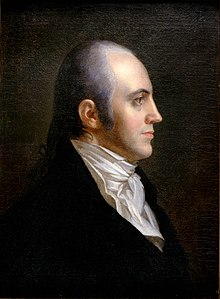

Aaron Burr & Thomas Pinckney, "Fathers of Forge democracy"


Aaron Burr & Thomas Pinckney, "Fathers of Forge democracy"
When all the small parts on how the government would be run would finally be agreed upon, the Constitution would finally be completed and be ratified on the 5th of July, 1786, with a joke being amongst Americans that the Constitution would've been ratified on Independence Day on the 10th Anniversary of the United States, but George Washington had lost his pen and refused to sign it until he found it, although that story was proven a myth a few years later and was simply still being looked over while Independence Day was happening and there was no real rush to sign it. With the new Constitution in place, the head of state had to be elected, that being the Consul, with whoever came in second becoming the Vice Consul. The title Consul was chosen to be the title of the head of state, as it was drawn from Washington's title as the Provisional Consul. The name President had been tainted by the Articles of Confederation and those at the Constitutional Convention wanted a fresh slate. When election time came around in December time, it was no competition that George Washington would become Consul of the United States, popular amongst the landed elite and the veterans.
However, one thing that was to be fought over was the role of Vice Consul. With limitations set by the Constitution to be Consul, the key requirement being that you had to be 35 or older to run for Consul, the popular Aaron Burr did not run for Consul and Thomas Pinckney, who had many calling for him to run, decided not to run. In the end, the veteran voters were split upon many candidates with military backgrounds. While John Adams was unable to garner support from the veterans with him being against their right to vote, John Jay was able to come into the spotlight by taking advantage of his role in the Treaty of Paris, so he could be painted as the peacemaker to the soldiers. His staunch opposition to slavery was taken advantage of by Southern candidates, but those Southern voters' votes would be fractured amongst candidates having personal likes and loyalties with each during the Revolutionary War, while Northern soldiers were more unified in their vote, with most voting for John Jay. When it all finally came to an end in 1787, George Washington was elected Consul, with John Jay becoming the Vice Consul. With the first election over, the Congress was questioning if their decision was correct. Many Southerners feared that if Washington were unable to be Consul later on or stepped down, John Jay being his successor would spell doom for the South. Not only that but they feared the growing popularity of Aaron Burr. Would the power go to his head?
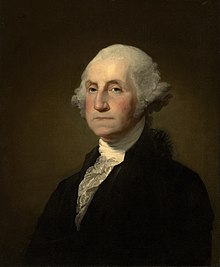
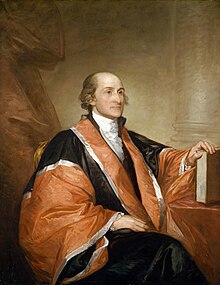
Consul George Washington & Vice Consul John Jay
Last edited:
